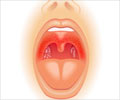Probiotics and xylitol chewing gum are not effective in treating pharyngitis. They may not offer benefits for symptomatic management of pharyngitis.

‘There may be no reason for clinicians to advise patients to use either probiotics or xylitol for the symptomatic management of pharyngitis.’





Evidence exists that indicates probiotics and xylitol, a birch sugar that prevents bacterial growth, can help reduce recurrence of upper respiratory tract infections.The study included 934 people in the UK during the four year study period (June 2010 to 2014), of whom 689 provided complete data for the trial. Using a symptom diary, participants reported the number of probiotic capsules and sticks of chewing gum used each day, as well as the severity of symptoms. They were study "compliant" if they had taken 75% of their allotted treatment.
Researchers found no significant effect of either probiotics or xylitol on sore throat (pharyngitis) symptoms.
"There were no significant differences between groups for both the xylitol and the probiotic groups, which suggests that neither intervention helped in controlling acute symptoms," the authors write.
The study is one of only a few that looks at the effectiveness of two potentially useful alternative therapies for acute sore throats.
Advertisement
The study was conducted by researchers from the University of Southampton, Southampton, UK, with a patient collaborator.















